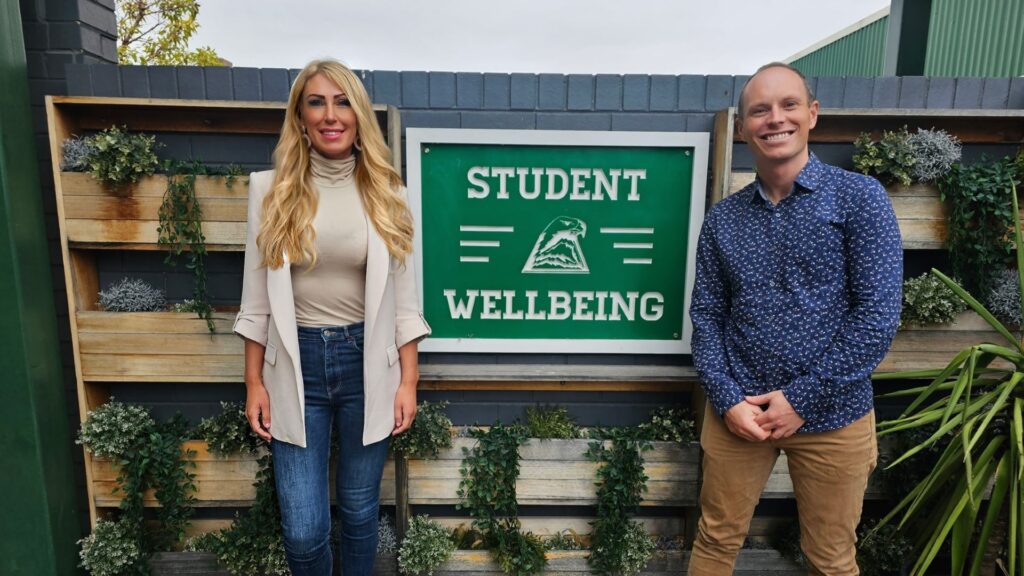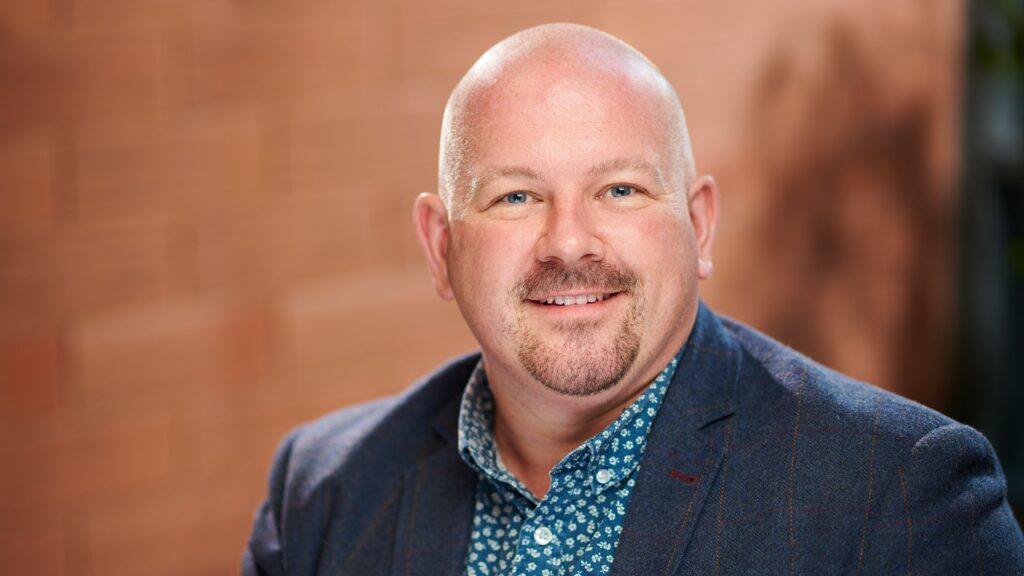Should the UK voting age be lowered to 16? The world is changing rapidly, so with so much at stake, should young people have more of a say in their future? We asked two of our students to discuss the issues.
In the for corner: Amos Wynn, BA (Hons), Sociology with Politics


In the against corner: Thomas de Freitas, BA (Hons) Law with Politics
“What can you do at the age of 16? Well, you can consent to sexual activity, you can join the armed forces, you can even choose to get married, if that’s what you wish. But one thing you can’t do is vote.
“Considering that the things you can do can affect the rest of your life, why can’t sixteen year olds do the most important thing to help them shape their future?
“In 2016 Britain voted in a referendum to leave the European Union. This was a major decision for the country, and many young adults like myself were frustrated that we didn’t get a say in what happened. So surely things need to change and sixteen year olds should be given a voice where they can vote for their future?”
Amos Wynn, BA (Hons), Sociology with Politics
“With regards to your first point, it’s worth noting that while you can indeed join the armed forces and get married at 16, you may only do so with parental consent. And if you were to join the armed forces at 16, you would spend your first two years in training and at an army college; you are not legally allowed to be deployed to a battlefield until you turn 18.
“16 year olds are not deemed mature enough to make such decisions of their own volition and so, if the franchise were extended to 16 year olds, there would be a level of inconsistency in the way 16 year olds are treated. That is, unless your personal view is that 16, not 18, is the age of maturity/adulthood, and that you would be in favour of removing the age restrictions on being deployed to a battlefield, purchasing age-restricted items (alcohol, cigarettes, knives), allowing 16 year olds to drive, and forcing them to be tried as an adult in a court. The list goes on.
“You make the point that as 16 year olds can make life-shaping decisions, they should therefore be entitled to a vote. I would argue that this logic is flawed, as if we were to follow that rule an argument could be made to go further than just 16.
“For example, choosing your GCSE options in Year 9 (aged 13/14) will have ripple effects upon what A Levels you can take, which in turn will effect what you can study at degree level. Surely, if your argument is that you should have the vote if the things you ‘do can affect the rest of your life’, the argument could be made for going further than just 16? This argument, like the last, is flawed. It’s not an argument for 16 year olds to be given the vote, but merely an open argument against having the current age at 18.
“This flaw was carried on into your final point. The decision to leave the European Union won’t just affect those 16 and over. It will affect everyone. 15 year olds, 14 year olds, etc. Should everyone who is affected by a decision have a vote? Should those in primary schools have a vote, as they are affected by the government’s education policy?
“As you believe that 16 is the age at which maturity is reached, would you support the removal of all the current protections afforded to 16 year olds which I set out earlier?
Also, why do you believe in votes at 16, but not at 15?”
Thomas de Freitas, BA (Hons) Law with Politics
“It’s a very good argument that 16 year olds may not have the maturity to vote on important issues, or even be interested. But that can be said for people at 18. Perhaps the opportunity to vote at 16 would even make more young people interested in politics.
“Using the example of Brexit again, a lot of young people who were unable to vote may already be disillusioned with the political system and feeling their voices aren’t being heard. I think you’re wrong to sell 16 year olds short and say they don’t have the maturity to help make big decisions. Look at the Scottish Referendum, 16 year olds were allowed to vote and arguably with great success.
“Around 80% of the eligible voters turned out. This is compelling evidence that 16 year olds are ready, as those in Scotland clearly felt they needed to make that difference.
“Yes, of course, I admit there has to be a line, and people will continue to debate that if 16 year olds are given the vote, why not even younger people? But I feel the completion of secondary education would leave 16 year olds in an excellent position. They would’ve been in an environment for five years where their minds would’ve been expanded and picked up some social knowledge. They would have also been in an environment where they would’ve been involved in making decisions in a subtle way.
“After completing GCSEs is the best time for people to decide on their future, whether enrolling on an apprenticeship or continuing formal education. And surely, if they’re making such big decisions in their own lives, they should be able to have a say on the world around them.
“You state that 16 year olds need permission to join the army and get married, but it’s still their decision to do that. If you feel that 16 year olds need adult permission to vote, then so be it, build it into the system.
“Of course the age to buy alcohol and cigarettes should remain at 18, but that’s more to do with health than maturity. And yes, they’re seen as children in the eyes of the law, but not everything should run in a strict line.”
Amos Wynn, BA (Hons), Sociology with Politics
“On the first point, I do agree. The issue of engagement and interest in politics does vary across all age groups. This is why we should not base the vote on engagement as you suggest. Rather, we should base the privilege of the vote on something immovable, like a clear age which doesn’t give rise to the inconsistencies that 16 has. At 18 you’re an adult, you’ve grown into your full rights and responsibilities as a citizen, and thus you should at that age receive the vote.
“You also talk about maturity of 16 year olds. It isn’t me saying that 16 year olds cannot make decisions for themselves – you yourself have said that the state should step in to prevent 16 year olds from buying cigarettes and alcohol. You don’t believe they are mature enough to decide for themselves if they want a drink, but they are mature enough to cast their vote?
“Following on from this point, giving 16 year olds the right to vote would introduce an absurd situation in which somebody could vote in an election but could not stand in an election. That is, unless you wish to reduce the age at which you can stand to 16 too, in which case you believe that 16 year olds should be able to decide on issues of war and peace, but not decide on whether to have a cigarette. It simply makes more sense to have a harmonised age. When the state allows you to decide on issues affecting you and your health, that should also be the age at which you can decide upon the health of the wider society.
“In response to my question about the line between 15 and 16 year olds, you say that 16 year olds have passed the milestone of completing secondary education. I’d remind you that students start turning 16 in the September of Year 11, not upon completion of Year 11.
“In the end, the debate should be around which age makes the most sense. With 18 being the age at which the vast majority of countries extend the privilege of the vote, with it being the age of adulthood, with it being the age at which you assume your responsibilities as a citizen, with it being the age at which you are recognised as being old enough to make decisions for yourself, it makes much more sense to keep the voting age at 18, as opposed to reducing it to 16 over some vague notion of wanting to increase turnout (and in the process give rise to major inconsistencies in the law).”
Thomas de Freitas, BA (Hons) Law with Politics
“As I argued previously, I do feel that the drinking and smoking age should remain at 18, but that is not in any way about denying them that decision because they aren’t mature enough to take it; it’s more about their medical needs. Just because 16 years olds can’t buy alcohol doesn’t mean we have to follow that age limit for everything.
“You also said they cannot stand for Parliament. That is very true, but they can still be involved in other ways. It’s unlikely that anyone at 18 could successfully run for Parliament, even though they are allowed.
“16 years olds are still able to actively participate in politics, campaigning, for example, not being able to run for Parliament shouldn’t mean they should be denied a vote on who they want to represent them. 16 year olds are more socially aware than you give them credit. Even while still in school, people can start to build their political understanding and start to formulate their own beliefs.
“And I don’t think they should be allowed to vote just because it’ll improve turnout stats. I believe they should vote because they have enough understanding to form their own opinions, and with the power of social media it’s hard for 16 year olds not to be involved these days. Of course there will still be people who aren’t interested, but it may lower that number and may make politics a more central part of education.
“In conclusion, this is an important issue that’s time has come. I feel there’s a huge demand for this decision to be made – in the last election Jeremy Corbyn pulled in young voters, with those who couldn’t vote still interested. As a member of a political party I was allowed to vote for who I thought should be leader of my party when I was only 16, so why shouldn’t this be at a national level. Put faith in 16 year olds and I’m sure they’ll repay it.”
Amos Wynn, BA (Hons), Sociology with Politics
“On your first point, you say that 16 and 17 year olds shouldn’t be able to buy alcohol for health reasons, and then say that denying them that ability is not an issue of maturity. But it is. Telling somebody that they are not old enough to make a certain decision about their lives is absolutely questioning their level of maturity.
“On the second point, there is a clear inconsistency in saying that a person should be able to vote for somebody else to represent their area, but not be allowed to put themselves forward. It doesn’t matter if it’s unlikely that an 18 year old would be elected, it’s the principle behind it that counts (although don’t forget Mhairi Black was elected at 20).
“I don’t accept the argument that simply because somebody knows a bit about politics or goes campaigning they should be entitled to vote. Plenty of people under 16 know about politics. Plenty of under 16s go campaigning. At what point do we say that ‘this age is the cut-off point’. If we reduced it to 16, would there then be a campaign to reduce it to 15?
“Finally, you raise two points: young people becoming more engaged in the last election, and voting in the Labour leadership election. On the first, analysis of the 2017 election found that there was only a very modest increase in turnout among under 24s, and turnout by 18-20 year olds may have actually decreased compared with 2015. Either way, we should not base our franchise on turnout. On your second point, anyone over the age of 14 (and a Labour member/supporter) could vote in the 2015 leadership election.
“From what I’ve seen, there’s no argument for reducing the voting age specifically to 16. Many of the arguments and examples which have been used could be applied to people under the age of 16.”
Thomas de Freitas, BA (Hons) Law with Politics
Points of order
In 1969, the UK was the first country to reduce its voting age to 18, followed by the United States (1971), Canada, West Germany (1972), Australia (1974), and France (1974)
In 1984 Nicaragua became the first country to lower the voting age further, to 16, followed by Brazil in 1988 (for employed citizens). The Isle of Man, Guernsey, Jersey and Scotland all have a voting age of 16, and the 21st century has also seen Austria, Ecuador, Argentina, Malta, and Estonia join the group.
As of October 2018, 314 out of 650 MPs support the proposition: including Conservatives Nicky Morgan, MP for Loughborough and Justine Greening, MP for Putney, Change UK – The Independent Group’s Sarah Wollaston, MP for Totnes, the Green Party’s Caroline Lucas, MP for Brighton Pavilion, and most Labour and Liberal Democrat MPs. Just over half of the members of the House of Lords support the idea.
William Pitt the Younger(28 May 1759 – 23 January 1806) became the youngest British prime minister in 1783 at the age of 24.
The current Baby of the House, the unofficial title given to the youngest member of Parliament, is the Paisley and Renfrewshire South MP Mhairi Black (SNP). When elected in May 2015 she became the youngest ever UK Member at 20 years and 237 days.
April 1, 2019



